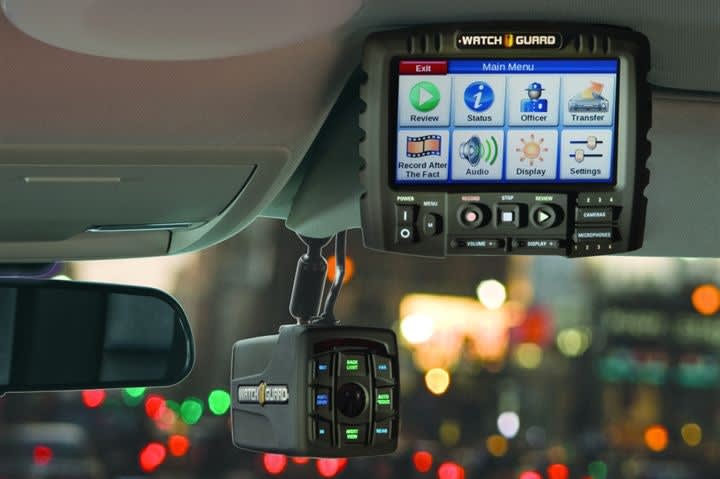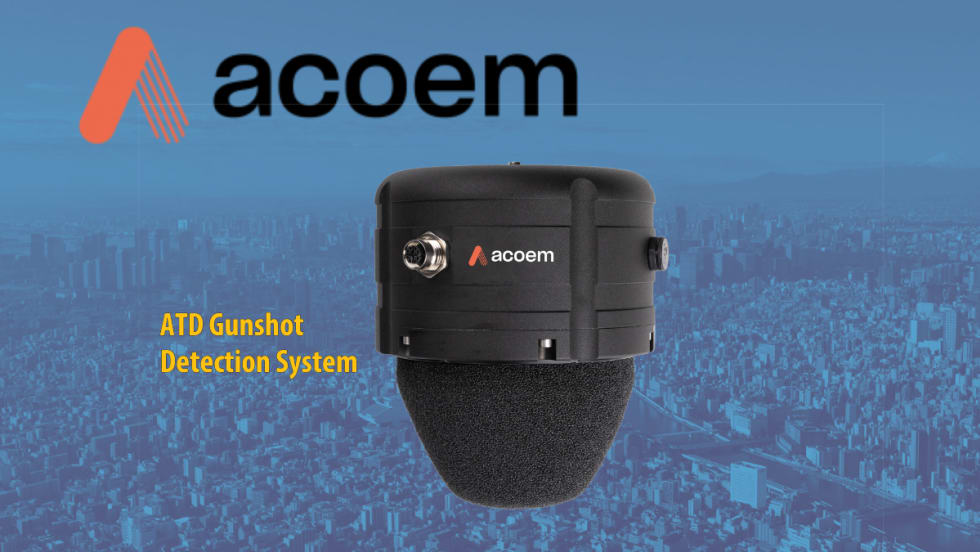WatchGuard Video announced today the production release of the WatchGuard 4RE HD Wireless In-Car Video System, the first true high-definition in-car video system for law enforcement. The company claims that the WatchGuard 4RE (Four Resolution Encoding) is completely revolutionary because it eliminates the agonizing compromise between video quality and file size. WatchGuard says its patent pending design provides more than 3.5 times higher image resolution than the best video quality offered by any competing system while simultaneously lowering the overall file storage requirements.
"HD police video by itself is not a great idea due to its massive storage requirements," explains Robert Vanman, CEO of WatchGuard Video. "The brilliance of this product is that it makes HD practical by giving agencies incredible image quality for the video that turns out to be important, while keeping the routine video (typically 90 percent of recordings) at a standard resolution. In order to minimize storage costs, the majority of other digital in-car video systems record at a very low CIF resolution. The WatchGuard 4RE HD's image resolution is a remarkable 16 times better than CIF, yet the overall file storage requirements will be equal or even less than competing systems."
Video files from the WatchGuard 4RE HD will typically be uploaded wirelessly using a new, advanced industrial grade 802.11n antenna system that features dynamic beamforming and adaptive meshing technology, in a robust, 5.8 GHz multi-radio antenna design. This wireless system boasts real-world transfer speeds fast enough to upload nine hours of video from six vehicles simultaneously in about 300 seconds, and is completely scalable for large agencies that require a high number of concurrent transfers.
WatchGuard's new 4RE HD system records onto a solid state USB flash drive (commonly known as a thumb drive), which is locked securely behind the DVR's access panel. In addition to the removable USB flash drive, a built-in non-removable hard drive provides complete data redundancy. This redundancy makes possible the patent pending technology called "Record-After-The-Fact," which is the ability to create a brand new record event from any of the background recorded video that has been buffered on the hard drive, possibly days after the event occurred. The redundant drive architecture also allows agencies to grant officers permission to manually upload files to the server using the convenient USB flash drive (if needed) without ever exposing the agency to any risk of evidence loss or tampering.
The WatchGuard 4RE HD also breaks new ground with the graphical user interface on its 4.3-inch touch screen display, which matches the camera's ideal 16:9 wide screen aspect ratio. The operation of 4RE is extremely simple and file uploads, configuration updates, and firmware upgrades are fully automatic and "hands-free" to the officer.
The WatchGuard 4RE system includes a sophisticated back-end server package called WatchGuard Evidence Library 2.0 that runs on Microsoft SQL Server 2008. This state-of-the-art backend software provides advanced file management, a graphical search engine, and is scalable for agencies from 1 - 5,000 officers or more.
WatchGuard Video is best known for the WatchGuard DV-1, a DVD-Video based product. The development of WatchGuard's new 4RE product was not based on the DV-1; it was an all-new, ground-up design that is the first in-car video system to take advantage of the latest advanced compression technology called H.264 Main Profile (MP). Existing H.264 in-car video systems utilize the simpler H.264 Baseline Profile (BP), which creates files that are 40%-50% larger than H.264 Main Profile files at equivalent video qualities. The 4RE design cycle took more than 3 years to complete, and was the largest product development effort in the history of the in-car video industry. It was also the first design to utilize multiple Texas Instruments' DaVinci DM365 video processors.












